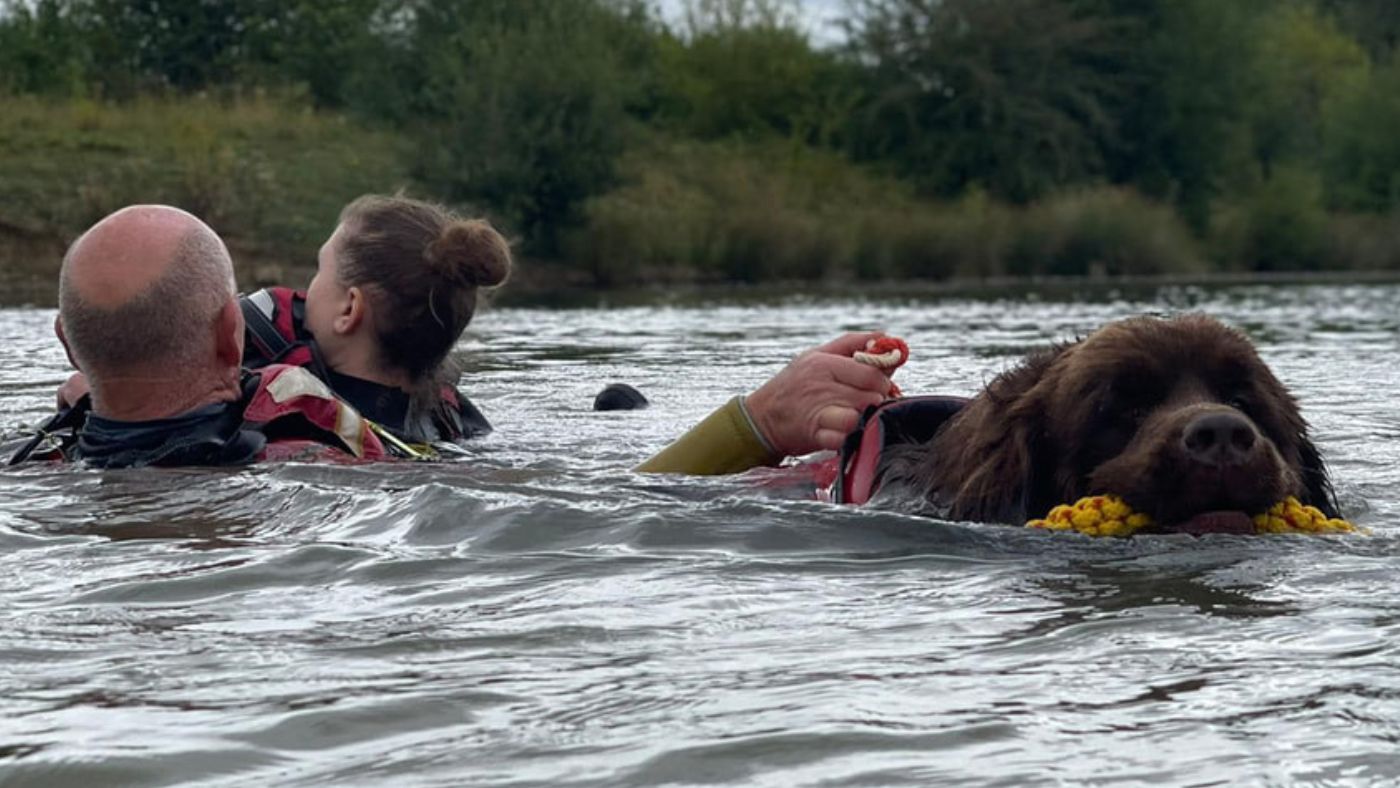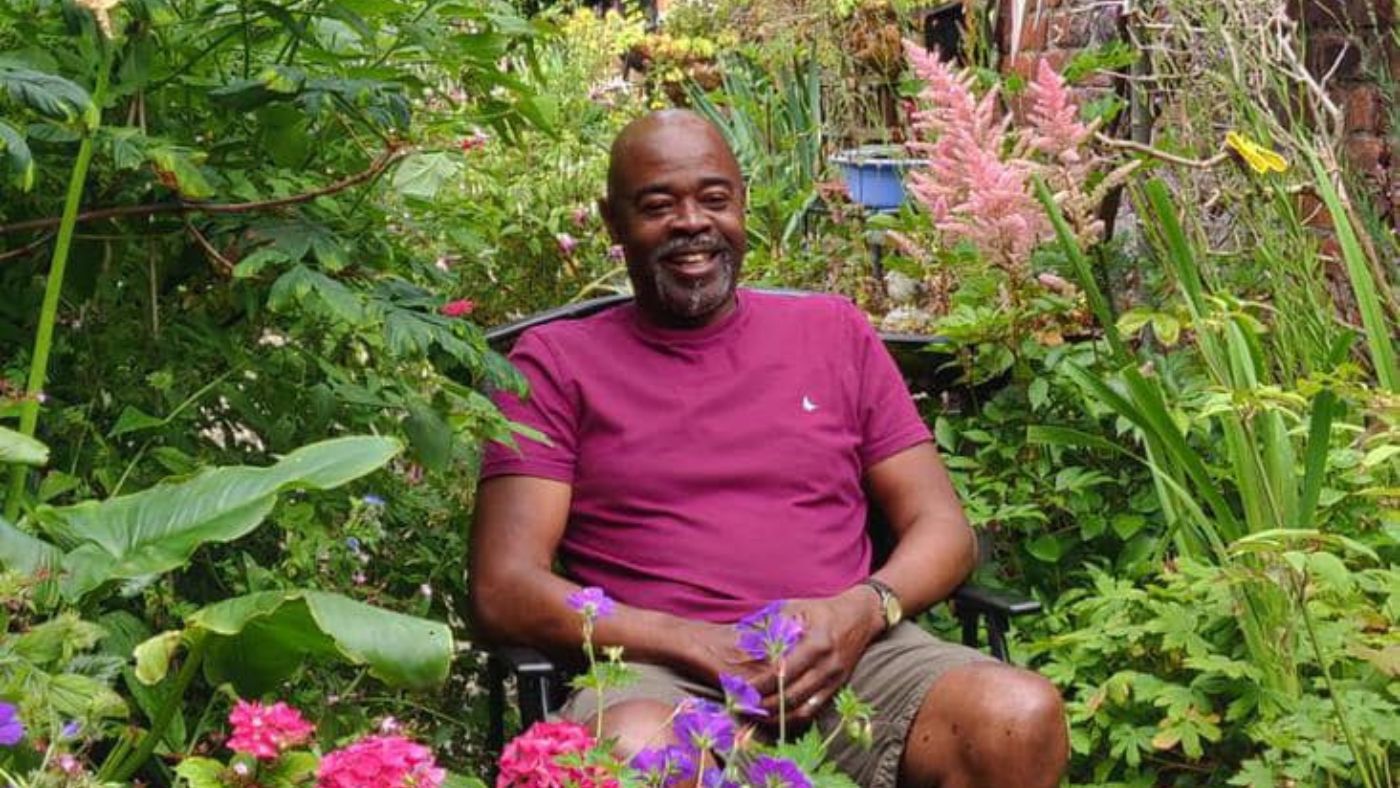The week's good news: Sept. 14, 2023
It wasn't all bad!


A free daily email with the biggest news stories of the day – and the best features from TheWeek.com
You are now subscribed
Your newsletter sign-up was successful
Bertie Gregory gets his audience up close to the world's wildlife
Bertie Gregory hopes that by sharing his adventures exploring the world, it will inspire the next generation of wildlife enthusiasts. The 29-year-old BAFTA winner has been a cinematographer for Nat Geo Explorer, but is in front of the camera for his new show "Animals Up Close with Bertie Gregory," now streaming on Disney+. He traveled to Antarctica, Asia, Africa, and South America, and told The Week nothing would be better than learning people come away from the show "pumped about the natural world and how amazing animals are — the scale and majesty and intricacies of it all." Antarctica was his favorite place to film, because it's "so big, so wild, and very humbling," he said. His crew filmed an "extraordinary" gathering of whales, who showed "how smart wild animals are. I can't think of a better example of animal intelligence, of problem solving and teaching. It gives me goosebumps." Disney+
Free app helps boost literacy rates in Somaliland
In Somaliland, a free phone app is bringing literacy to all corners of the country. Most adults here cannot read and write, due to a long civil war, drought and a lack of infrastructure. The app, called Daariz, teaches users these skills. It was founded by Ismail Ahmed, who moved from Somaliland to the United Kingdom when he was in his 20s. While teaching his children Somali, it dawned on him that mobile phones could be used "to tackle the learning crisis" in Somaliland, he told BBC News. Daariz also works offline, so people in rural areas can have access to it as well. Hodan Artan, a 23-year-old dishwasher, said she couldn't afford to attend school as a child, nor could her parents. Her friends suggested she use Daariz, and two months later, she can read Somali and comprehend some short stories. "I feel that I no longer belong to where I was yesterday," Artan said. BBC News
Dogs trained for ecological monitoring aid in conservation efforts
The canines that are part of Working Dogs for Conservation (WD4C) help protect wildlife around the world by sniffing out everything from invasive species to weapons used by poachers. There are 45 dogs in the organization, with most working in North America or Africa. Almost all of them were rescued from shelters, and have characteristics that make them perfect for their job: they have a lot of energy, are motivated by toys and have a strong work ethic. "It's not easy work," WD4C Executive Director Pete Coppolillo told The Washington Post. "We ask these dogs to do very difficult tasks." Each dog has a handler who trains them to track certain odors, and after they spend all day working together collecting data, the pup is rewarded with toys and treats. "The truly exceptional thing about a dog is their relationship with us," Coppolillo said. "It's the relationship with us, with humans, that makes them so special." The Washington Post
The Week
Escape your echo chamber. Get the facts behind the news, plus analysis from multiple perspectives.

Sign up for The Week's Free Newsletters
From our morning news briefing to a weekly Good News Newsletter, get the best of The Week delivered directly to your inbox.
From our morning news briefing to a weekly Good News Newsletter, get the best of The Week delivered directly to your inbox.
Young Italians work to 'conserve and pass down' their rare dialect
In Southern Italy, young people in three small towns are working to preserve Slavomolisano, a language that has been spoken in the area since the 1400s. Slavomolisano combines ancient Croatian with the dialect of Italy's Molise region, and until just a few decades ago was the primary language in the towns of Montemitro, Acquaviva and San Felice. There has been a decline in the number of speakers, partly because it isn't taught in public schools, but several residents are trying to turn things around. They launched Discover Montemitro, an Instagram and blog that showcases Slavomolisano and the area's history and culture. "We want to preserve, conserve and pass down this beautiful language," co-founder Marco Romagnoli, 22, told The Christian Science Monitor. Discover Montemitro shares photos and local recipes, bringing the area to anyone with an internet connection. "This heritage was passed down to us from our ancestors hundreds of years ago," Romagnoli said. "I don't want to lose it." The Christian Science Monitor
Humane education program teaches teens ethical farming and animal care
Through a new partnership between the Catskill Animal Sanctuary and LEAP (Leaders for Ethics, Animals, and the Planet), high school students in New York will spend the academic year learning about sustainable agriculture and ethical farming while bonding with rescue cows, pigs, goats and sheep. This innovative humane education program "packs a lot of punch," Andrea Nassar, director of humane education at Catskill Animal Sanctuary, said in a statement. Students will learn everything from "how to advocate for animal welfare and human rights" to preparing "to help lead the way in climate solutions, sustainability and wildlife conservation." The students will meet once a month from October through June, at the Catskill Animal Sanctuary in New York's Hudson Valley. "With humanity at such a crossroads, young people must be empowered to act on behalf of the greater good," Nassar said. "Empathy is strength." Catskill Animal Sanctuary
A free daily email with the biggest news stories of the day – and the best features from TheWeek.com
Catherine Garcia has worked as a senior writer at The Week since 2014. Her writing and reporting have appeared in Entertainment Weekly, The New York Times, Wirecutter, NBC News and "The Book of Jezebel," among others. She's a graduate of the University of Redlands and the Columbia University Graduate School of Journalism.
-
 How to Get to Heaven from Belfast: a ‘highly entertaining ride’
How to Get to Heaven from Belfast: a ‘highly entertaining ride’The Week Recommends Mystery-comedy from the creator of Derry Girls should be ‘your new binge-watch’
-
 The 8 best TV shows of the 1960s
The 8 best TV shows of the 1960sThe standout shows of this decade take viewers from outer space to the Wild West
-
 Microdramas are booming
Microdramas are boomingUnder the radar Scroll to watch a whole movie
-
 The week's good news: Sept. 21, 2023
The week's good news: Sept. 21, 2023It wasn't all bad!
-
 The week's good news: Sept. 7, 2023
The week's good news: Sept. 7, 2023feature It wasn't all bad!
-
 Lives transformed by swimming with Newfoundland dogs
Lives transformed by swimming with Newfoundland dogsfeature Good news stories from the past seven days
-
 The week's good news: August 31, 2023
The week's good news: August 31, 2023feature It wasn't all bad!
-
 The week's good news: August 17, 2023
The week's good news: August 17, 2023feature It wasn't all bad!
-
 Earring lost at sea returned to fisherman after 23 years
Earring lost at sea returned to fisherman after 23 yearsfeature Good news stories from the past seven days
-
 Farmer plants 1.2m sunflowers as present for his wife
Farmer plants 1.2m sunflowers as present for his wifefeature Good news stories from the past seven days
-
 Manchester alleyway transformed into a plant-filled haven
Manchester alleyway transformed into a plant-filled havenfeature Good news stories from the past seven days
